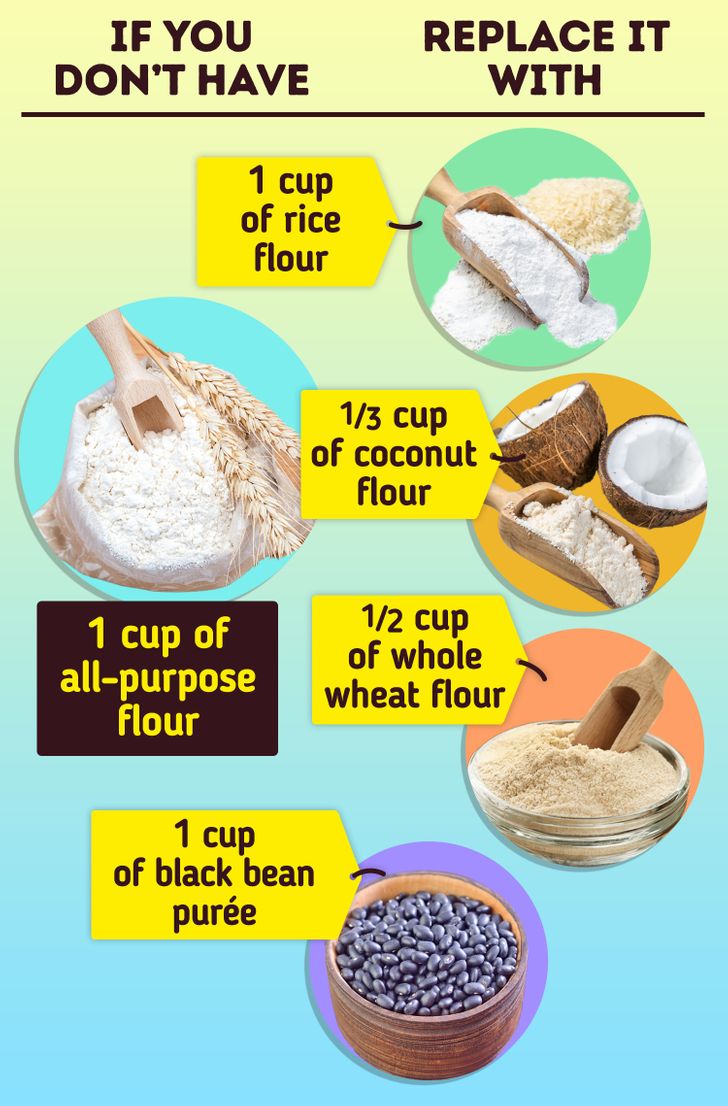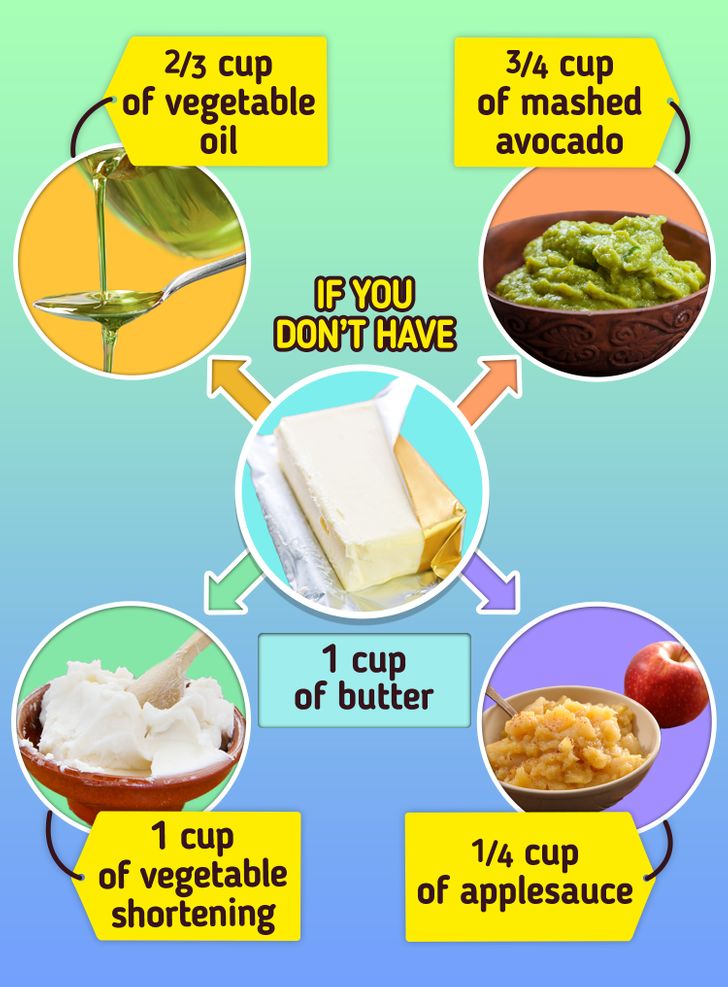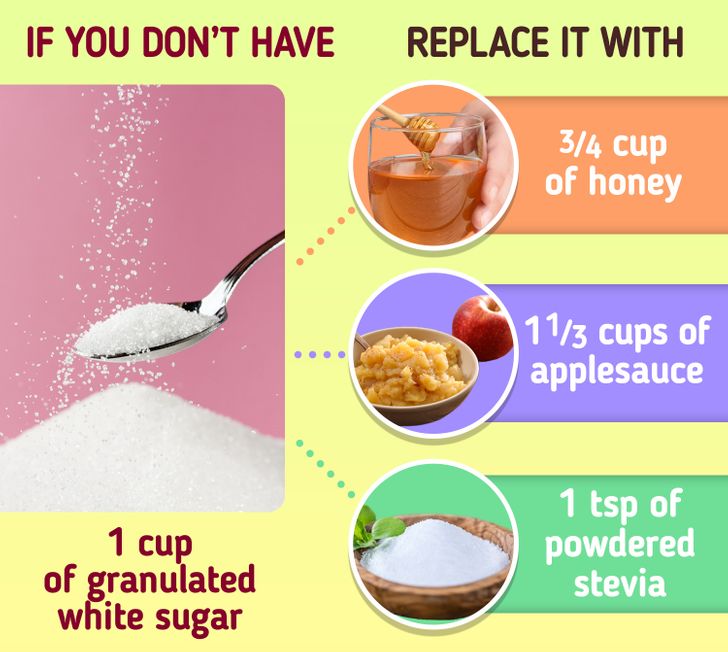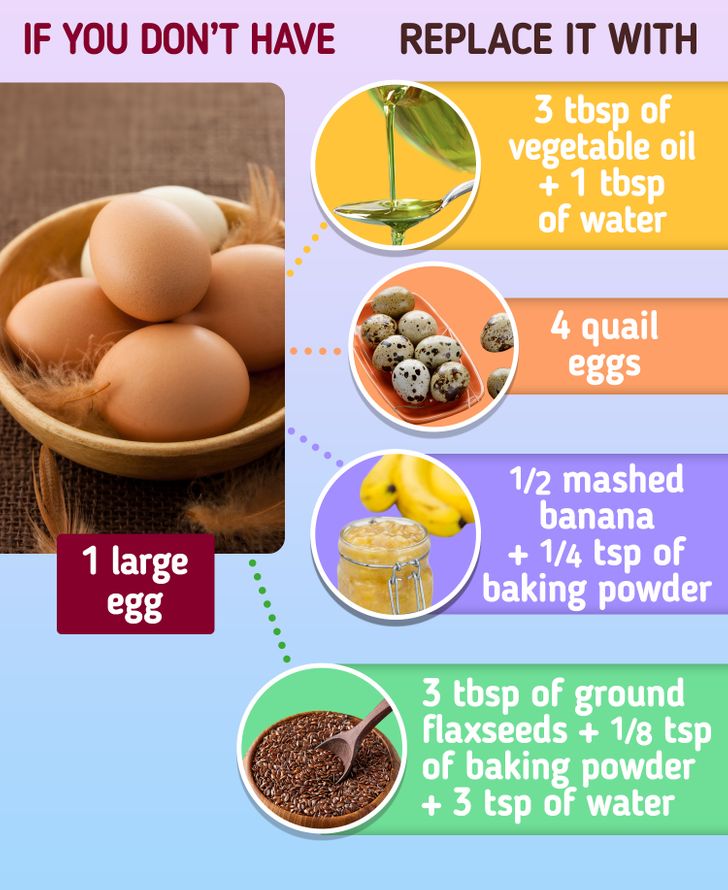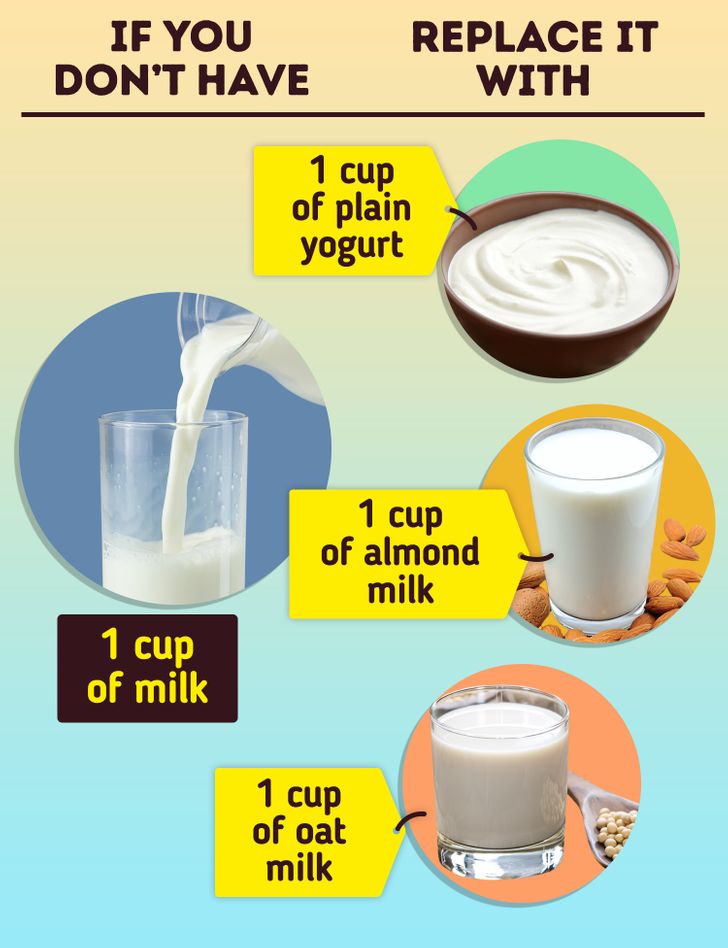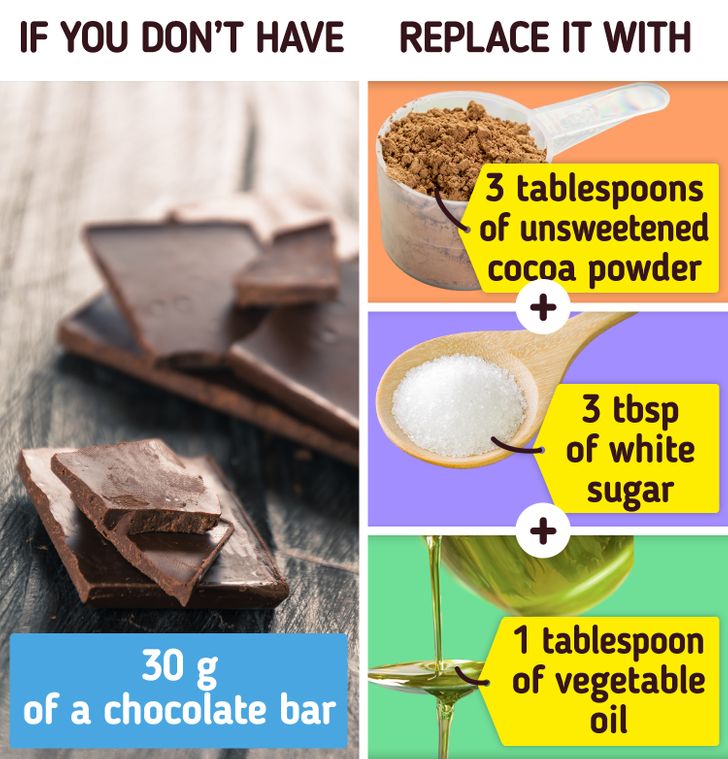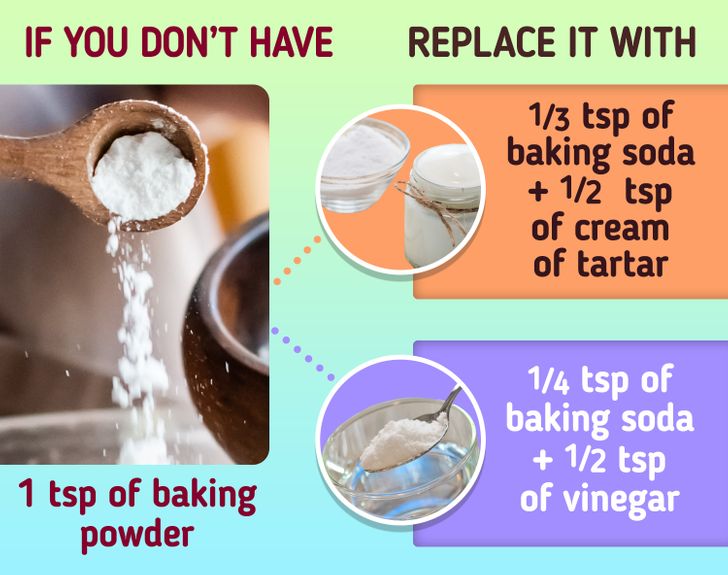7 Ways to Replace Basic Ingredients in Your Pastry Recipes
Sometimes, when we feel like baking a cake, cupcakes, or cookies, we go to check out our pantry only to realize we don’t have all the ingredients we need to make the delicious pastries we crave. Or maybe when we’ve started to prepare them, we spill the milk or break an egg, and this can ruin the entire plan.
5-Minute Crafts wants to share several products that can be used to replace certain ingredients in your recipes and that can help you solve those unforeseen situations in the kitchen. In addition, these substitutes could be useful if you want to prepare a healthier alternative.
1. All-purpose flour
Flour may very well be one of the most difficult ingredients to replace when you’re baking something. However, if you don’t have this product, here are some options that can come in handy:
- 1 cup of all-purpose flour equals 1⅓ cups of cake flour, 1 cup of strong flour, or 100 g of rice flour.
- 1 cup of all-purpose flour equals ⅓ cup of coconut flour. It is recommended for people with diabetes, as it is low in carbohydrates and rich in fiber.
- If you want to turn a specific recipe into something a little bit healthier, you can always use whole wheat flour or oat flour instead of all-purpose. Just add half the amount of flour suggested in the directions. That means for every 100 g of all-purpose flour, use 50 g of whole wheat flour or oat flour since both products absorb more water.
- For each cup of all-purpose flour, you can use 1 cup of black bean purée. It adds fiber to your low-calorie cakes and cookies.
- In case the recipe calls for 1 cup of self-rising flour, mix 1 cup of all-purpose flour + 1½ teaspoons of baking powder + ¼ teaspoon of salt.
2. Butter
- We can substitute the amount of butter that a recipe requires with the same amount of margarine or vegetable shortening.
- Another alternative is to use ⅔ of that amount of vegetable oil. For example: if the recipe calls for 1 cup of butter, pour in 100 ml of oil.
- You can also use fruit purée. Instead of 1 cup of butter, use ¾ cup of avocado, ½ cup of banana, or ¼ cup of apples, plums, or dates.
3. Sugar
- You can also substitute the amount of granulated white sugar you need for a recipe with honey. However, you’ll have to use 20% less than what the recipe calls for. In other words, if you need 1 cup of sugar, use ¾ cups of honey.
- If you want your recipe to be healthier, for each cup of sugar you need, add only 1 teaspoon of stevia powder.
- You can also swap 1 cup of this ingredient for 1⅓ cups of applesauce.
- For 1 cup of brown sugar, you can use 1 cup of granulated white sugar plus 1 or 2 teaspoons of molasses (cane honey).
- For 1 cup of powdered sugar, blend 1 cup of granulated sugar along with 1 teaspoon of cornstarch until it becomes a very fine powder.
4. Eggs
Replace each large egg needed in your recipe with any of the following:
- 4 quail eggs
- ½ ripe plantain mashed with ¼ teaspoon of baking powder
- 3 tablespoons of vegetable oil plus 1 tablespoon of water (if you’re taking it to the oven)
- 3 tablespoons of ground flaxseed with ⅛ teaspoon of baking powder and 3 teaspoons of water (if you’re taking it to the oven)
- If you have at least 1 egg available but need another for preparation, add 1 teaspoon of baking powder plus 1 teaspoon of white vinegar.
5. Milk
- You can substitute 1 cup of whole milk for the same amount of vegetable milk, natural yogurt, fruit juice, or water, taking into account the amount of sugar you should decrease or add.
- For each cup of whole milk, use ½ cup of evaporated milk with ½ cup of water.
- In case your recipe calls for 1 cup of buttermilk, whisk 2 teaspoons of lemon juice or white vinegar with whole milk to make up 1 cup of liquid, and let it stand for 5 minutes. You can also combine ½ cup of plain yogurt with ½ cup of whole milk.
- If you need 1 can of condensed milk, replace it with 1 can of evaporated milk (250 ml) plus 1½ cups of sugar, and heat the mixture until the sugar is completely dissolved.
6. Chocolate
- If the recipe includes semisweet chocolate bars or chips, for every 30 g you need, substitute by mixing 3 tablespoons of unsweetened cocoa powder, 3 tablespoons of white sugar, and 1 tablespoon of melted butter or vegetable oil.
- For every 30 g of unsweetened chocolate powder, combine 3 tablespoons of carob powder plus 2 tablespoons of water.
- Another option could be to use pure cocoa (more than 70%). Grate or chop it into small pieces in the amount you need.
7. Baking powder
- 1 teaspoon of baking powder equals ⅓ teaspoon of baking soda plus ½ teaspoon of cream of tartar.
- You can also use for each teaspoon of this element, ½ cup of buttermilk with ¼ teaspoon of baking soda.
- Other variations you can use are ¼ teaspoon of baking soda and ½ cup of natural yogurt, or ¼ teaspoon of baking soda and ½ teaspoon of vinegar.
